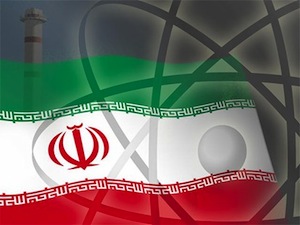Do Sanctions Work?
April 27, 2011
Featured Image
Today's top nuclear policy stories, events, and analysis with excerpts in bullet form.
Stories we're following today - Wednesday, April 27, 2011:
How Effective are Sanctions in ‘Changing Behavior’? - Glenn Kessler for The Washington Post [link]
- “What we have seen is that sanctions can put pressure on governments and regimes to change their behavior.” - White House spokesman Jay Carney, April 25, 2011
- Key Iranian officials in the nuclear field and the Iranian Revolutionary Guards have been targeted for sanctions — similar to what the administration is considering for the Syrian leadership — but those steps have also not deterred the Iranian government from its nuclear path.
- In many ways, in fact, it is not the sanctions themselves but the ending of sanctions that is perceived to have the greatest impact. So the promise of easing sanctions is sometimes used as a lure to induce countries to change behavior.
- NOTE: For more on how this relates to Iran read the USIP report, "Engagement, Coercion, and Iran's Nuclear Challenge".
Spelling Pentagon waste: MEADS - Tom Schatz for Politico [link]
- One possible cut is the Medium Extended Air Defense System, a collaborative transatlantic missile defense project.
- An internal U.S. Army memo, as The Washington Post reported last March , stated that the program “will not meet U.S. requirements or address the current and emerging threat without extensive and costly modifications.” Translation: It’s sure to cost a lot more than $16.5 billion.
- However, U.S. partners on the program have signaled their displeasure. The Merkel administration in Germany is now under intense pressure to withdraw, and the Italian government has also signaled its desire to end its involvement. The three allies may be able collectively to negotiate an end to MEADS, resulting in savings for each country, including hundreds of millions for Washington.
Carter Seeks Teacher's Release in North Korea - Se Young Lee for The Wall Street Journal [link]
- Former U.S. President Jimmy Carter arrived in Pyongyang Wednesday on an apparent mission to secure the release of a U.S. citizen held by North Korea, the second such trip by a former U.S. president since last year.
- Mr. Carter made the trip to seek the release of Aijalon Mahli Gomes, a U.S. citizen from Boston convicted in April of entering the country illegally through China. Mr. Gomes is the fourth American detained for similar offenses over the past year.
- During his visit last year, [Bill] Clinton met with North Korean leader Kim Jong Il and discussed the nation's nuclear ambitions and the prospect of improving relations between the two countries....While neither Mr. Clinton nor Mr. Carter represent the U.S. in such talks, they provide a rare chance for officials in isolated North Korea to appear in public with high-profile, albeit retired, U.S. figures.
Nuclear Agency Faces Reform Calls - Geoff Brumfiel for The Scientific American [link]
- From the name, one might expect the International Atomic Energy Agency (IAEA) to have been a major force in the response to the Fukushima nuclear crisis in Japan. Instead, its performance was sluggish and sometimes confusing, drawing calls for the agency--an independent organization that advises the United Nations--to take a more proactive role in nuclear safety.
- But nuclear experts say that the agency's complicated mandate and the constraints imposed by its member states are big obstacles to any major reforms.
- Whether the IAEA can gain more independence to assess nuclear accidents is uncertain, but its emergency scale is very likely to be revisited given the confusing way in which it has been used. Some commentators have also called for a stronger IAEA that can enforce global safety standards or take control in an emergency, but Acton labels such ideas "insane". Nations might begin to feel that "safety is not our responsibility", he says.
New Computer Strike Could Target Iranian Atomic Sites - Global Security Newswire [link]
- A new computer-based assault on Iran appeared to target atomic sites and might reflect a wider effort to sabotage the Middle Eastern nation's nuclear activities, the Washington Post reported on Monday.
- “The Stars virus has been presented to the laboratory but is still being investigated,” said Gholam Reza Jalali, director of the Iranian armed forces' Passive Defense Organization.
- Computer-based strikes might have inflicted heavier damage on Iran's nuclear program than previously assessed, the Post quoted U.S. and European specialists as saying. Stuxnet was engineered to persist until 2012, and the worm might assume a low profile in infiltrated computers until it receives a launch instruction from an outside site, said David Albright, who heads the Washington-based Institute for Science and International Security.
EVENT: "Next Steps in U.S.-Russian Arms Control" and "U.S. Nuclear Deterrent Strategy" - May 3rd, 2011 8:00-9:00 am [link]
- Linton Brooks, former Administrator, National Nuclear Security Administration
- Frank Miller, former National Security Council staff
- Part of the NDUF-NDIA Seminar Series at the Capitol Hill Club, 300 First St., SE, Washington
- RSVP to Elma Rhue at rhuee@nduf.org



